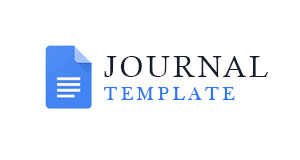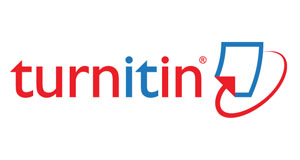The Development Of Halal Literacy In Indonesia From Tradition To Modernity
Abstract
This study explores the historical development of halal literacy in Indonesia, from traditional oral transmission by religious leaders to a modern, structured system. Halal knowledge was shared informally through religious teachings and local customs in the early stages. However, globalization and the rise of the halal economy have transformed halal literacy into a formal system. This shift is marked by establishing the Badan Penyelenggara Jaminan Produk Halal (BPJPH) and integrating digital technology into the halal certification process. The study highlights key challenges in promoting halal literacy, such as limited public awareness of halal products beyond food and restricted access to halal certification for small and medium enterprises (SMEs). Despite these challenges, Indonesia has significant potential to become a global leader in the halal market through technological innovation, enhanced education, and government support. This research aims to provide a deeper understanding of the importance of halal literacy in the daily lives of Indonesian Muslims and its role in the future development of the halal industry.
Keywords
Full Text:
PDFReferences
Aisya, S., & Najmi, F. (2023). Halal Consumer Behavior: Business Opportunities for the Millennial Generation Post-Pandemic in Palu City. Journal of Islamic Economics and Business, 5(1), 44.
Amini, A., Fasa, MI, & Suharto, S. (2022). The Urgency of Halal Food in the Review of Islamic Consumption. LIKUID: Journal of Halal Industry Economics, 2(2), 1–14. https://doi.org/10.15575/likuid.v2i2.16031
Anwar, MK (2018). The Urgency of Halal Assurance System for Product Reliability. International Journal of Islamic Business and Economics (IJIBEC), 2(2), 119–125. https://doi.org/10.28918/ijibec.v2i2.1388
Fathoni, MA et al. (2022). Determinant of Consumer Awareness Toward Halal Food During The Covid-19 Pandemic: Evidence from Indonesia Indonesia ( MUI ), in Malaysia , there is the Jabatan Kemajuan Islam Malaysia. Iqtishoduna: Jurnal Ekonomi Islam, 11(148), 67–84. https://doi.org/10.36835/iqtishoduna.v11i1.1319
Giyanti, I., Indrasari, A., Sutopo, W., & Liquiddanu, E. (2020). Prioritizing important factors for the success of halal food standard practice in Small Medium Enterprises. IOP Conference Series: Materials Science and Engineering, 1003(1). https://doi.org/10.1088/1757-899X/1003/1/012102
Hidayat, SE, & Musari, K. (2022). ASEAN towards a global halal logistics through the digitally enabled community. International Journal of Asian Business and Information Management, 13(2), 1–15. https://doi.org/10.4018/IJABIM.20220701.oa1
Kashim, MIAM, Majid, LA, Adnan, AHM, Husni, ABM, Nasohah, Z., Samsudin, MA, & Yahaya, MZ (2015). Principles regarding the use of Haram (Forbidden) sources in food processing: A critical Islamic analysis. Asian Social Science, 11(22), 17–25. https://doi.org/10.5539/ass.v11n22p17
Khaliqi, M., & Pane, T. C. (2021). Young consumer awareness of halal food in Indonesia. E3S Web of Conferences, 332, 0–4. https://doi.org/10.1051/e3sconf/202133204004
Mellita, D., Trisninawati, & Apriyadi, R. (2020). Intention to Halal Certification: Challenges in Increasing the Value Added of the Culinary SMEs. 117(Gcbme 2018), 174–178. https://doi.org/10.2991/aebmr.k.200131.038
Ramadan, MH, & Maulana, AI (2015). Effect of Lifestyle, Quality Products, Price, and Halal Labeling on Buying Decisions (Case Study at Jakarta State University). Paper Knowledge . Toward a Media History of Documents, 3(April), 49–58.
Bulletin of Community Engagement. 3(2), 2019–2024.
Supandi, AF, Istiadah, I., Hannan, FF, & Kusbiantoro, S. (2021). Halal Food Industry Innovation in Jember (Study on Opportunities and Challenges). Mabsya: Journal of Sharia Business Management, 3(2), 92–100. https://doi.org/10.24090/mabsya.v3i2.4850DOI: https://doi.org/10.24952/tijaroh.v10i2.14105
Refbacks
- There are currently no refbacks.
Copyright (c) 2025 At-tijaroh: Jurnal Ilmu Manajemen dan Bisnis Islam

This work is licensed under a Creative Commons Attribution-ShareAlike 4.0 International License.














